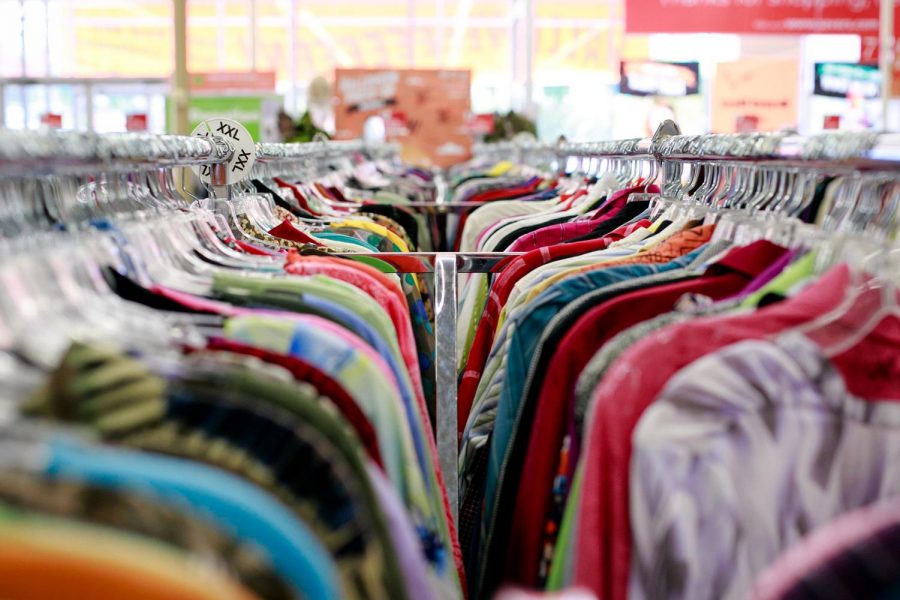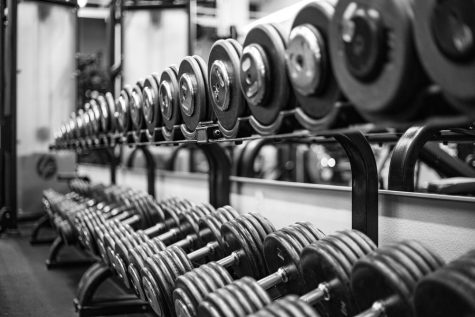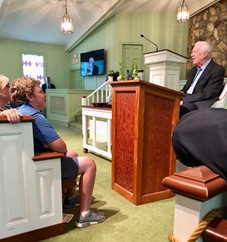The Dos and Dont’s of Ethical Thrifting
February 7, 2021
Shopping secondhand is trendy for some, and a way of life for others. As someone who has the privilege to thrift for enjoyment and not necessity, I have learned to respect certain ethical boundaries.
It is embarrassing to admit, but before coronavirus hit, I was a mall rat. With too much frequency I ventured to Kenwood to spend my money at fast fashion stores like H&M, Forever21, and PacSun. I arrived home with sore arms from my bevvy of plastic bags and a nagging feeling of guilt. I liked my new clothes, but I wondered at what or whose expense was my 12.99 striped sweater made?
When I started thrift shopping at the Milford St. Vincent de Paul, my doubts temporarily receded. I was paying less money and giving used clothes a second life. I felt creative. No longer was the perfect pair of jeans at the tip of my fingers or the click of a button. I had to work a little, yanking aside hangers and hangers until I found something acceptable. When I arrived home, I would use tape, scissors, a needle, and thread to crop, hem, and make the item of clothing truly my own. Now thrifting is one of my favorite weekend activities, but I try to make sure to respect those for whom thrifting is not a pastime or hobby. For many Americans, stores like Salvation Army, Goodwill and St. Vincent De Paul are not only where they buy their everyday attire but also their winter coats, kitchenware, and furniture. Below are a few ideas I keep in mind while thrifting.
Don’t stockpile. As online secondhand websites like Ebay, Depop, and ThredUp become more mainstream, online sellers have become greedier. If you are ever wandering the aisles of a Goodwill and see a well-dressed young person with an overflowing cart, chances are that they are stockpiling, gathering all a store’s inventory to sell it online for 5 times the original price. Although they enjoy high profits in their online stores, stockpilers strip secondhand stores of all their treasures, leaving lower-income shoppers with fewer choices.
Do donate (if you can). The more that I shop at Goodwill and other secondhand shops, the more crowded my closet becomes. Because I benefit from the low prices of consignment stores, I try to give back by donating some of the clothes that have been sitting in my closet to more appreciative homes.
Don’t take necessities: As I have mentioned earlier, the biggest thing to remember about thrifting is not to take things that you don’t need. Although racks of winter coats at an extremely reduced price are tempting, but if you already have a coat, leave it. The same goes for hats, gloves, underwear (not that you should be buying that anyway) and discounted kitchen supplies. Save the waffle maker for someone who needs it and head to your local kitchenware store instead.
Do be careful: A lot of thrift shoppers do not wear real masks or obey social distancing measuring. Although Hamilton County is currently at a purple rate, many shoppers do not hesitate to wear cropped face shields or masks on their chins or below their noses as if there is not a pandemic currently ravaging our country. If anyone in your family or in your friend group is high risk, the best thing you can do is to stay safe and thrift online. Websites like Depop, Ebay, ThredUp, and even Facebook marketplace have the same deals as your local thrift store without the high risk of infection.
Don’t forget accessories: My favorite things to thrift are earrings, necklaces, and purses. There are gems hidden everywhere, from vintage watches to discounted Coach purses. The jewelry is incredibly cheap and surprisingly decent quality! I have had the most luck shopping for funky necklaces.
Do shop on weekend mornings: In my experience, most stores restock on Fridays and Saturdays, so make sure to arrive at your favorite store early to enjoy the best finds. The stores will be less crowded, parking will be easier, and you will have the first pick of the newest items.
The biggest key to thrifting is restraint. As you wait your turn in the checkout line, remember not to buy anything that someone else may desperately need. Enjoy the deals, but remember who these charity shops were built to serve before you go crazy. Happy hunting!














Deborah Floyd • Feb 12, 2021 at 5:57 pm
What a thoughtful article! As an avid thruster I appreciate your call for consideration and restraint. I almost always drop off before I shop. One stop! Also, for those is over 50 there is a 25% discount. SHOP ON!
Carole Lichty-Smith • Feb 12, 2021 at 3:11 pm
Great article!!! I learned a lot.